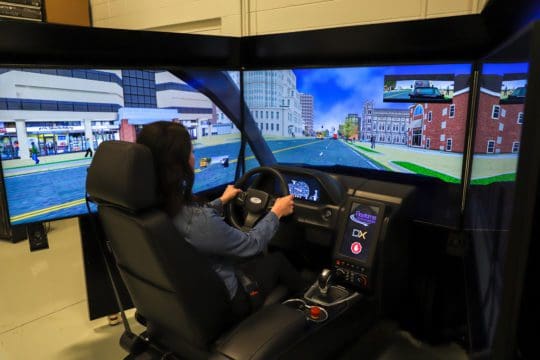
Using Driving Simulators to Explore Emotions and Driver Safety
Published on
Americans’ love of cars and the open road. It’s only predictable that many of our emotional and interpersonal dynamics would…

Explore Simulation for Transportation Research at the 103rd Transportation Research Board Annual Meeting (January 7-11, 2024, Washington, D.C., Booth #1024)
Published on
Realtime Technologies (RTI)—FAAC’s research training and simulation division—is looking forward to discussing the latest in simulation software and hardware applications…

Driving Research: Are Most Car Crashes *Simply* the Result of Human Error?
Published on
We often hear the statistic that “94% of all motor vehicle accidents are due to human error.” It’s an oft-repeated…

Human Factors Research: Using Sims to Increase Comfort and Reduce Confusion with “Autonomous” Vehicles
Published on
No conversation about autonomous vehicles (AV) and advanced driver-assistance systems (ADAS) gets far without celebrating its potential for decreasing human…

Exploring Driver Disengagement During AV/ADAS Operation
Published on
It’s become abundantly clear that, as vehicles themselves become more capable of taking on routine driving tasks, human factors research…

Do Aggressive Drivers Speed or Does Speed Make Us Aggressive?
Published on
It’s generally accepted that “speed kills.” Urban or rural, single vehicle or multi-vehicle, with or without pedestrians: both the risk…



